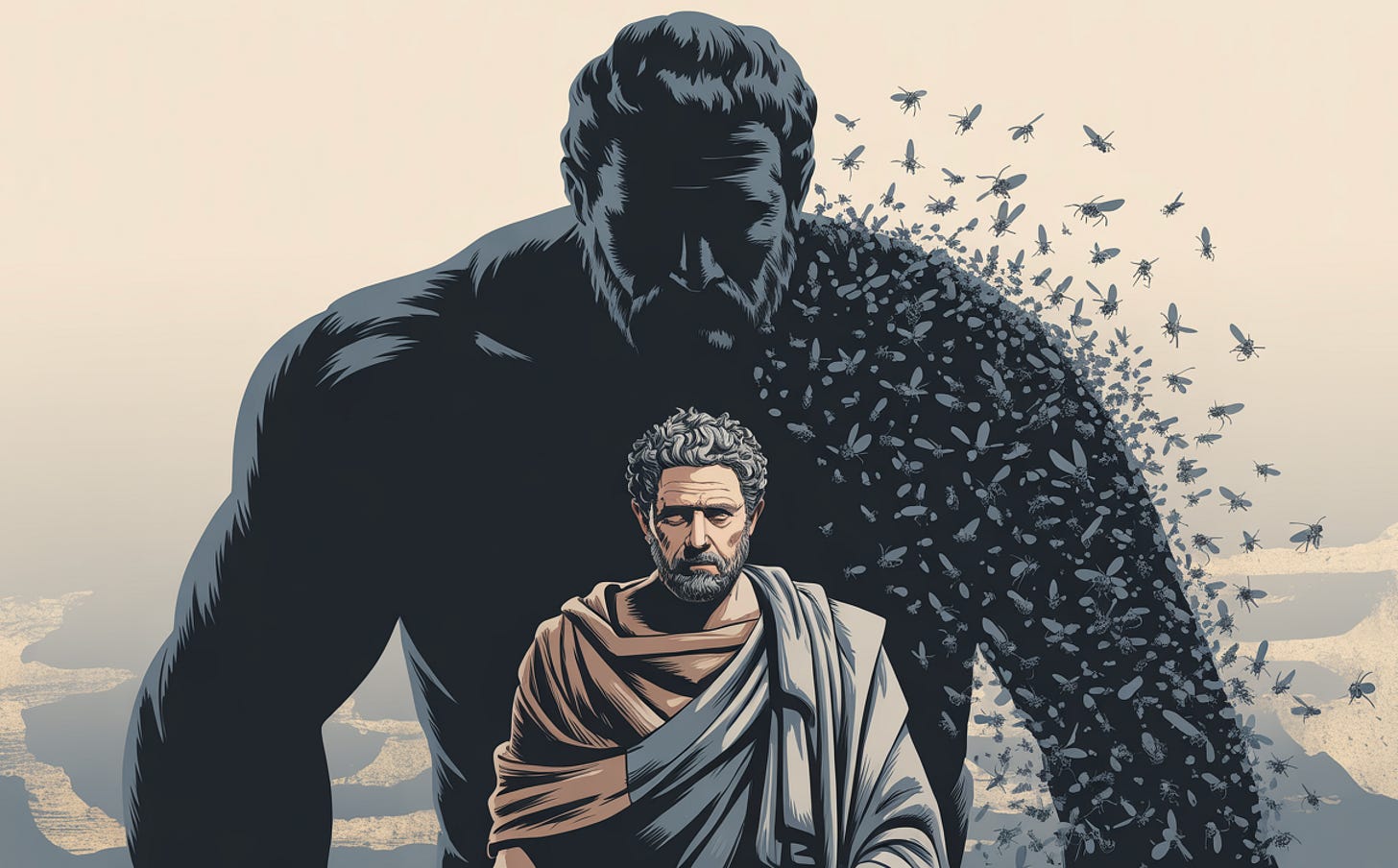Built to be outgrown
Forget the Giants. What About the Gnats?
🔌 Try https://tny.dev if you need to shorten links and love agents. MCP server here.
Last September, Klarna dropped a bomb. The internet predictably caught fire. You must remember.
They were killing Salesforce. And Workday. Not replacing them with competitors… but with internal versions of these products they built using AI themselves. Oh and earlier they had also fired some 700.
Fast forward to this May, reality tempered the euphoria. Klarna was hiring humans back, admitting that customers still needed to "reach a real person."
The pendulum swung, but not all the way back. They'd proven something important: the massive SaaS suites we've accepted as inevitable aren't.
Everyone debated whether AI could topple the giants.
But now in the thick of startup land, at SpecStory we’re asking a sharper, smaller question: What about the gnats?
The $40 monthly parking ticket
For us, it started with a URL: get.specstory.com/extension. Simple. Functional. And apparently worth $40 a month to keep short with a custom domain and slug.
For the past six months I would get a notification through Brex that my Bitly invoice was due.
Another founder friend over iMessage had been joking about their "SaaS tax".
The monthly bleed of small tools that each solved one tiny problem. Link shortening. Form building. Social scheduling. Death by a thousand $40+ cuts.
Here's what a typical startup's "utility drawer" looks like:
Link shortening: $40/mo
Calendaring: $20/mo
Forms: $50/mo
Social listening: $30/mo
Social scheduling: $15/mo
Product docs: $100/mo
Applicant tracking: $300/mo
Total: $580/mo for basic functionality… and thats not even counting up all of it.
Each tool justified by its specialization. Each vendor building moats through feature accretion. Each month, the same parking tickets in your inbox.
A Heretical Thesis?
Remember disposable cameras? I wrote about them in more software should die young.
They were perfect because they were temporary. Twenty-seven shots. No settings to fiddle with. Pass them around at parties. Hold your breath while the film developed.
They died when smartphones arrived, but I still think about them fondly.
Not despite their limitations. Because of them.
What if business software could embrace the same philosophy?
At SpecStory, alongside our core products we're building what we call TNY tools: focused and deliberately limited.
But here's the twist… If you use these products, we expect you to outgrow us.
Not in five years. Not in three. We're designing for an 18-month relationship.
When you graduate to something bigger, we'll celebrate.
Terminal-First in an AI World
The philosophical shift goes deeper than pricing. Most business SaaS tools still assume a human clicking through web interfaces. But agents don't click buttons, they call endpoints.
So we're building that way:
Agent-First: Designed for AI assistants, not just humans
API-First: Every feature accessible programmatically
Terminal-Friendly: Use MCP (Model Context Protocol) in your flow of work
Your terminal (with Claude Code, AMP, Gemini, etc) becomes the control panel.
Because it's honest about how work actually happens now.
Our link shortener costs $9/month. Priced like what it is: a utility, not a platform.
No usage tiers. No feature gates if you upgrade from a the generous free tier.
No roadmap toward becoming "more than just link shortening."
Built on edge infrastructure so your links redirect in milliseconds, globally.
This isn't about being cheap.
When software knows what it is – and more importantly, what it isn't – it can be excellent at its purpose without the weight of larded on futures just to juice ARR.
The Virtue of Being Outgrown
There's something beautiful about building software designed to be abandoned. It forces clarity:
What is the core job to be done?
How little can we charge while sustaining the service?
What features would we add only to justify higher prices?
When should a customer genuinely need something else?
Every enterprise software company talks about "growing with you."
We're saying the opposite: "We'll be perfect for you until we're not, and then we'll help you leave."
The cucumber is bitter? Then throw it out. There are brambles in the path? Then go around them. That's all you need to know. Nothing more. — VIII. 50
Building for the Builders
Klarna provoked what thousands of small teams will prove in aggregate.
The SaaS bundle that made sense in the last decade when switching costs were high and integrations were painful stops making sense when an AI agent needs to wire up clean composable primitives in minutes.
It's changes (at least in my mind) what a lot of SaaS needs to be: smaller, cheaper, more focused, more composable and eventually more disposable.
As we expand TNY tools into a suite, each addition follows the same principles:
Solve one problem excellently: API and MCP first
Price it like a utility
Make it trivial to integrate
Make it trivial to leave
The ultimate respect you can show a founder isn't trapping them in your platform.
It's giving them exactly what they need today, at a price that doesn't make them think twice, with the freedom to evolve tomorrow.
With TNY we absolutely do not aspire to build the next Salesforce. We're building the software equivalent of disposable cameras: perfect for right now, memorable for what they enabled, and graceful in their eventual obsolescence.
When AI can spin up custom solutions in minutes, the moat isn't features or lock-in. It's being so focused, so affordable, and so easy to adopt that building it yourself isn't worth the conversation.
$0 or $9 a month. For as long as you need it. Until you don't.


